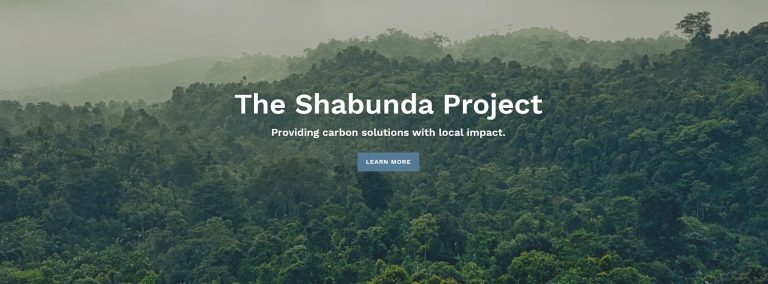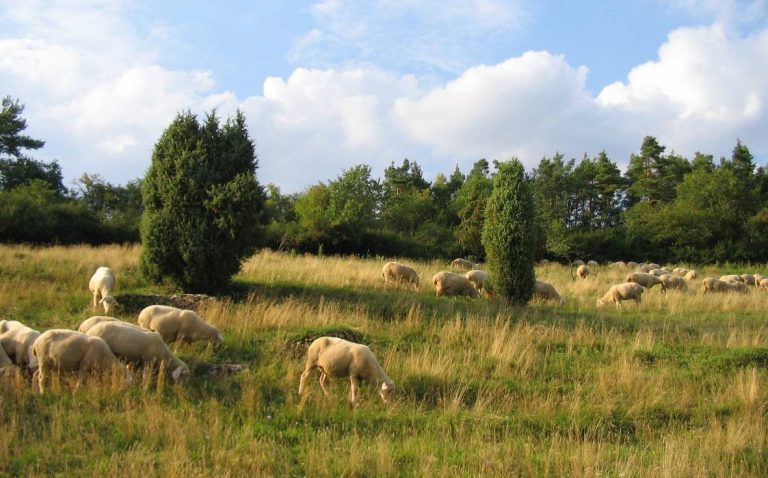Dear IPSI members and friends,
Greetings from the IPSI Secretariat in Tokyo, Japan. IPSI and its members continue to stay active in a wide variety of projects and activities related to landscape and seascape approaches towards "societies in harmony with nature".
This month’s newsletter contains an update on IPSI's engagement in the process of developing a post-2020 global biodiversity framework, as well as announcements of a new article on IPSI and our case studies, academic opportunities at UNU-IAS, a new project from our partner GIERI in the Democratic Republic of the Congo, and a recent case study from Landcare Association Neumarkt i.d. OPf. in Germany.
As always, we hope you will contact us to submit any new case studies or other information about your activities, or if you have any questions or comments.
IPSI Secretariat

TOPIPSI NewsletterIPSI Newsletter, January 2020
IPSI Newsletter, January 2020
2020.01.29
Update on IPSI and the post-2020 framework process
IPSI partners and the Secretariat have been actively participating in the development of a post-2020 global biodiversity framework under CBD processes. We look forward to another busy year of contributing to this process, working to ensure that landscape approaches including the SEPLS concept are included as an integral part of future biodiversity policy. We have a few updates this month.First, the "zero draft" of the framework has been developed and made public by the CBD Secretariat. It is available for download here. Many of the concepts central to a landscape approach are included throughout the document, although landscape approaches are not specifically mentioned yet.
The CBD Secretariat has also sent out notifications calling for submissions of "views on possible targets, indicators and baselines for the post-2020 global biodiversity framework" as they relate to:
- "Drivers of biodiversity loss as well as on species conservation and the mainstreaming of biodiversity across sectors"; and
- "Interlinkages and interdependencies between biodiversity and climate change".
Also, IPSI Secretariat staff members are looking forward to taking part in upcoming meetings related to this process, to be held in Kunming, China:
- Thematic Consultation on Transparent Implementation, Monitoring, Reporting and Review for the Post-2020 Global Biodiversity Framework, 20-22 February 2020
- Second meeting of the Open-ended Working Group on the Post-2020 Global Biodiversity Framework, 24-29 February 2020
- Thematic Consultation on Capacity-building and Technical and Scientific Cooperation for the Post-2020 Global Biodiversity Framework, 1-2 March 2020
For more information on the post-2020 process, please see the CBD website here.

New publication: Multi-level networks for sustainability solutions: the case of the International Partnership for the Satoyama Initiative
An article was recently published in the peer-reviewed journal "Current Opinion in Environmental Sustainability", outlining accomplishments of IPSI in particular related to a UNU-IAS research project using solution scanning methods to identify good practices from the IPSI case studies. According to the article abstract, "Collaborative networks such as The International Partnership for the Satoyama Initiative (IPSI) link scales through knowledge frameworks and implementation of solutions in response to challenges and opportunities for achieving biodiversity conservation and sustainable development in social-ecological production landscapes and seascapes (SEPLS). Multi-level networks possess an array of locally relevant solutions across ecosystems and scales. When solutions are co-analyzed through a systematic approach such as societal-based solution scanning, they offer pathways to realize resilient and sustainable societies through their prioritization and integration in the management of social-ecological production landscapes and seascapes." The article, by UNU-IAS' Raffaela Kozar and colleagues, is a great step towards bolstering the scientific basis for IPSI and the SEPLS concept, and readers are highly encouraged to read it.The online version of the article can be found here.
Academic opportunities at UNU-IAS
UNU-IAS, host of the IPSI Secretariat, recently announced two opportunities for anyone interested in academic study in sustainability.- UNU-IAS is now accepting applications for the JSPS–UNU Postdoctoral Fellowship programme for 2020. According to the UNU-IAS website, "Jointly organized by UNU-IAS and the Japan Society for the Promotion of Science (JSPS), the programme provides promising, highly qualified, young researchers with the opportunity to conduct advanced research relevant to the main thematic focus areas of the institute." The application deadline is 21 February 2020. For more information on the JSPS-UNU fellowship, please see the UNU-IAS website here.
- UNU-IAS is also currently accepting applications for its master’s and doctoral degree programmes. Both programmes start in September 2020 and conducted all in English. UNU-IAS students benefit from the unique opportunity to study in central Tokyo at a global university within the framework of the United Nations. Students gain both academic knowledge and practical research skills by actively contributing to the institute’s policy-oriented research projects.
28 February 2020: MSc in Sustainability
10 April 2020: PhD in Sustainability Science

Partner project: The Shabunda Project
IPSI partner Groupe d’Intervention Pour l’Encadrement Et La Réhabilitation Intégrale (GIERI), based in the Democratic Republic of the Congo, recently got in touch with the Secretariat to let us know that they have launched a major project to protect the Shabunda Rain Forest in the Congo Basin. According to its website, "This project is an effort to support responsible development efforts that not only conserve existing forest, but also provide the maximum social and economic benefits to the indigenous people of the Shabunda region." The project consists of two phases, first to create an area recognized under the QuantumQarbon scheme - which works to offset carbon and protect local indigenous peoples - and then to restore the forest and measure CO2 fluxes in the designated area.For detailed information on this project, its goals, and how you can contribute, please see the project website here. A short video on the project can be seen on YouTube here.

Recent case study: Landcare Association Neumarkt i.d.OPf.
The IPSI Secretariat recently received a case study from partner organization Landcare Association Neumarkt in der Oberpfalz, based in Germany, titled “Protecting by using – The regional brand 'Juradistl', An integrated approach for using and conserving cultural landscapes in the Jurassic landscape of Bavaria".According to the case study, due to intensive grazing until the beginning of the 1950s the region of Neumarkt i.d.OPf. in Bavaria has developed a particular cultural landscape with limestone neglected grassland and juniper heaths. Many species have adapted to the mosaic rich landscape and are dependent on its continuing land use. In 2002, the landcare association Neumarkt i.d.OPf. (LCA) and LCAs of three other Bavarian counties developed together a countywide ecological network for the cultural landscape in order to:
- Maintain and optimize biodiversity by an integrative system for sustainable land use.
- Secure or link habitats of endangered animal and plants species or to create new habitats.
- Increase awareness for biodiversity and nature conservation by project-related publicity, environmental education and low-impact tourism.
In order to achieve these goals it was essential to preserve and enhance traditional forms of land use without pesticides and mineral fertilizers based on traditional farming and extensive farming systems that help to maintain the rich diversity of the traditional landscape of this region. But diverse agricultural landscapes can only be preserved in the long-term if there is a market for products elaborated there by sustainable means. The best way to protect is the protection by using. The main idea then was to promote the local products with a distinct label that reflects sustainable farming practices.
That is why the Landcare Association Neumarkt i.d.OPf. with three other Landcare Associations and with the support of the district government of the Upper Palatinate initiated the implementation and management of regional marketing under the trademark of “Juradistl” in 2004. The regional brand “Juradistl” is now one of the biggest biodiversity projects in southern Germany.
For more information, please see the full write-up of the case study on the IPSI website here.
Contact
Please be sure to let the Secretariat know if there are any changes in your e-mail address or contact information.Secretariat of the International Partnership for the Satoyama Initiative
United Nations University Institute for the Advanced Study of Sustainability (UNU-IAS) 5–53–70 Jingumae
Shibuya-ku, Tokyo 150-8925
Japan
Tel: +81 3-5467-1212
Fax: +81 3-3499-2828
Email: isi@unu.edu
If you have been forwarded this newsletter and would like to SUBSCRIBE, you can do so on the IPSI website here.


